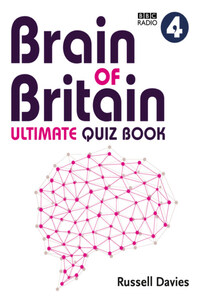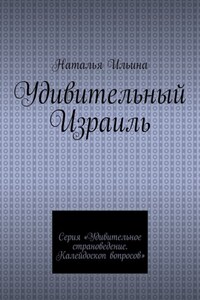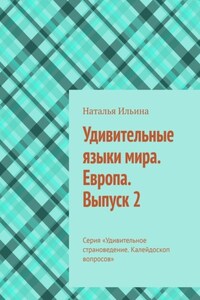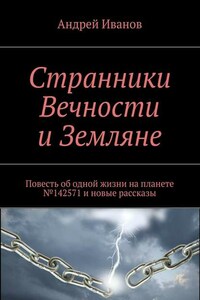COPYRIGHT
Published by Collins
An imprint of HarperCollins Publishers
Westerhill Road
Bishopbriggs
Glasgow G64 2QT
www.harpercollins.co.uk
First edition 2017
By arrangement with the BBC.
The BBC logo and Radio 4 logo are registered trademarks of the British Broadcasting Corporation and are used under licence.
BBC logo © 2005. BBC Radio 4 logo © 2011
Questions and Answers © 2017 BBC
Introduction and Appendix © 2017 Russell Davies
All rights reserved under International and Pan-American Copyright Conventions. By payment of the required fees, you have been granted the non-exclusive, non-transferable right to access and read the text of this e-book on screen. No part of this text may be reproduced, transmitted, downloaded, decompiled, reverse engineered, or stored in or introduced into any information storage and retrieval system, in any form or by any means, whether electronic or mechanical, now known or hereinafter invented, without the express written permission of HarperCollins.
The contents of this publication are believed correct at the time of printing. Nevertheless the publisher can accept no responsibility for errors or omissions, changes in the detail given or for any expense or loss thereby caused.
HarperCollins does not warrant that any website mentioned in this title will be provided uninterrupted, that any website will be error free, that defects will be corrected, or that the website or the server that makes it available are free of viruses or bugs. For full terms and conditions please refer to the site terms provided on the website.
eBook Edition © October 2017 ISBN 978-0-00-825331-8
Version 2017-09-01
INTRODUCTION
As I write, the BBC radio show Brain of Britain is approaching its 65th season, which makes it the most venerable of general knowledge quizzes anywhere. It’s beautifully simple: one mark for each correct answer, and a bonus mark for five correct answers in a row. The contestants come from all over the United Kingdom, and many of them seem to feel honoured to take part. An information sheet used to be sent out to them, with the times and places of the recordings, and a little note saying that there would be a small broadcast fee of £50. The producer of the time used to get letters back asking, “Where do we send the money?”. Our quizzers believed they had to pay to take part – and they were happy to do it.
What kind of knowledge is being tested? What does “general” mean? Well, the debate about that goes on from decade to decade, with the answer changing, not quite visibly, all the time. In the old days, for instance, you could get away with knowing almost nothing about science at all: in fact, the subject was more or less avoided. But now, since it’s clearly one of the bases of civilisation, science must be properly covered – but preferably without baffling us all with jargon. It’s a difficult balance to strike, but ideally there should always be that moment of delight when we learn something new. A good quiz question, I think, is the one that makes the listener say, “Really? Well I never knew that”, in a pleased sort of way. A while ago on the show, I found myself reading out a question which seemed to sum up the quiz experience as we see it. “Which character in a Dickens novel,” I asked, “often used the saying ‘When found, make a note of?’” What interested me most was not the answer (Captain Cuttle in Dombey and Son) but the idea that a certain class of information is interesting enough in itself to merit jotting down. It won’t normally be useful information, vital to the task of living, but there’s some element of surprise in it that makes it pleasurable to learn, and keep in memory.
There will never be a better moment than this to tell the programme’s story, so I’m going to do it, if only to pay due tribute to its originators: the pioneering producer Joan Clark, and John P. Wynn the inventor and first question-setter of the show, which originally went by the name of














